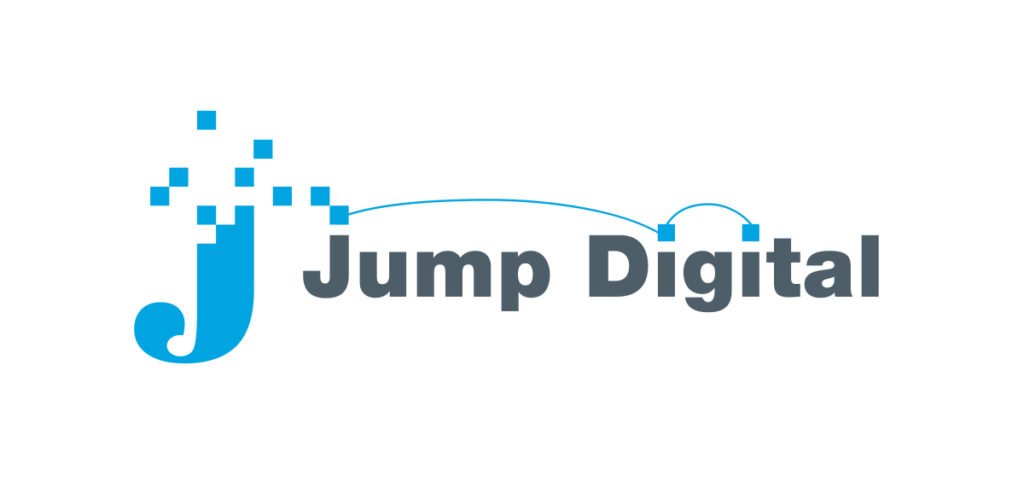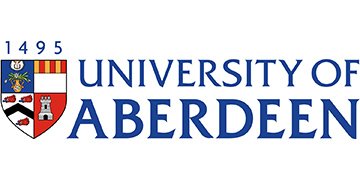Which digital marketing course should you choose?
One of the most common questions asked of OMCP is “Which Digital Marketing Courses are right for me?” In this education series, we interview seven leaders in digital marketing training to learn the differences.
In this episode, industry veteran and Jump Digital Founder Alex Clyne shares what to expect in Jump Digital’s marketing courses and where they are headed in the future.

Listen to the interview below, on iTunes or on Google Play
Michael:
All right. Welcome back to the OMCP studios, and with us today is Alex Clyne, co-founder of Jump Digital, makers of best-in-class digital education content and training courses. I’m your host, Michael Stebbins. Today we’ll be discussing digital marketing training and some of the differences you should be aware of. Alex, welcome.
Alex:
Thanks, Michael.
Michael:
We do know you’ve been involved in digital successfully, I might add, since the mid-nineties so as a founder, we want to know what drove you to get into the business of education and training.
What got you into digital marketing training?

Alex:
Sure. We were delivering through our digital marketing strategy organization strategy to corporates, and we were, our business model has always been to up-skill the internal people, so that they could own it going forward, because we believe that’s where digital marketing will live in the future. And we’re building bespoke training for these organizations. At the same time, we’re sort of witnessing this gap between IT and marketing, and the lack of practitioner led training in this new digital marketing field.
So we were visiting lecturers at the University of Aberdeen, and we convinced them to allow us to build their first ever online master’s program, which ends up in an MSC in digital marketing leadership, which has now been running for, successfully for over three years globally, and takes a very strategic vision of digital marketing. At the same time, we wanted to try and understand how people were learning now compared with in the past.
Alex:
So we built a platform that allows us to basically take an hour long lecture that you would get at a university and condense it into a seven, eight minute TV script, and then use them with the appropriate tool to transfer that knowledge. So it could be Camtasia, it could be animation, it could be straight face to camera, and so on. This has become really successful from the MSC prospective. And we embellish that with the relevant Ted talks and the most recent appropriate articles. Alongside this, there’s a sort of transcript, all the video material, so that people can read as well as listen and look at the appropriate materials.
And then two years ago we decided to develop a shorter version of the MSC, which we’ve called the accredited digital marketing professional. And we’ve used the same approach, the same learning methodology, and it’s now been accredited to the OMCA. So I suppose in summary, we came at it from a business perspective saying, “Look, we think there’s a gap in the market, and we think it should be practitioner led, so let’s go and do something about it.”
How do you measure success?
Michael:
Alex, when people are immersed in the courses, what do you look for to measure the success of your programs?
Alex:
Sure. Well, and that sort of shapes up in several methods. Because of the academic rigor that we are, have been forced to… that’s not the right wording, Encouraged through our relationship with the university, we are subject to their external audits and also independently they get feedback from the students on the programs. So we get regular, probably six monthly audits, and feedback from them independently. Student testimonials. I’ve gotta be honest, as a salesman, I couldn’t make them up. They’ve been really good. Right? Which is it surpassed their expectations. And we offer a lot of support mechanisms.
I suppose the other things that are measurable in this spaces is we have a very, very, very low dropout rate, and also combine that with the roles that people are moving into while they’re doing the programs, or when they successfully complete the programs. I suppose in other areas that our content has been used in other programs with other international universities. So I suppose that’s an acid test and a measure of how successful the courses have been.
Michael:
And the courses, is it a component of the master’s degree or is it interwoven through the whole thing? How is it merged into that program?
Alex:
The masters, we own the content. We own the IP, and it’s a masters delivered online. The accredited digital marketing professional, which is dual MC is basically, we’ve taken the first two modules of the masters and readapted them for people going through a program that is relevant for business now, and is relevant for employability, and is relevant for career development within an organization.
Michael:
So you have a wide spectrum of people taking the programs. How would you describe the ideal candidate for coming into the courses that you’re offering?

Who is an ideal candidate for your courses?
Alex:
Yeah, that’s an interesting question. I suppose anyone who has an interest or involvement in marketing, or sales, or strategy development within the role. Also consultancy and agencies. Interestingly, we know that students across a range of roles have found the value in the programs. And I’m talking about lawyers, publishers, political advisers. We’ve even got an executive head chef of a major airline doing one of our programs.
Michael:
One of the things, Alex, as you pointed out, you went through the evaluation for the OMCA certification of the program, and congratulations it passed easily. The evaluators noticed and actually really appreciated the academic structure, and noted it was excellent for your lessons. What else will participants find in your courses that they’re less likely to find somewhere else?
What is in Jump Digital courses that can’t be found elsewhere?
Alex:
Okay. We’ve taken the view that you have to look at digital marketing in a holistic view. So what we do is we take the students, the participants on a journey that demonstrates the relationships and the linkages between the major components of digital marketing. We didn’t want to create a history of digital marketing so the content is constantly reviewed and updated. The articles are constantly reviewed and updated, as well as the Ted Talks, and so on. We also built simulated companies so that people can deal with real live data. So they get an understanding of what works and what doesn’t work.
Not only, (I’m not sure should I say it like this, Michael) Not only will it get the OMCA, but it also get a certificate of completion from the University of Aberdeen, which is a top 100 university worldwide, and 20 CPD hours accredited to them. And I suppose the last things, we took the view that we had to train people going through these programs as consultants, either internal or external, so that they could deliver and create a common language with their colleagues to explain what was happening in this field. And I suppose the last thing is, we continue to run digital strategy company. So we have, we’re advising customers and corporates on a daily basis. So that ensures our content is relevant, practical, and current.
Michael:
You’re doing it. You’re in the trenches, and we’ve seen that be an important component to those who are creating the curriculum. Outside of that, Alex, who do you admire out there? Even outside of digital marketing? Who do you admire or do you think really has it done right in terms of training?
Who else is doing training right?
Alex:
Yeah, there’s a load of people I could give you names of, who are doing it. Because we also develop content and other areas as well but, in this space and they’re, also accredited by you. People like Circus Street are doing things really well. They really understand their audience, and they have a really neat way of delivering that to their audience. So I suppose in this sort of similar space, Circus Street would be one of the ones that I would look at and try and gain ideas from.
Michael:
Yeah. Actually we interviewed Richard yesterday.
Alex:
Did you? All right.
Michael:
It’s a good crew over there. Different approach than you.
All right, so the master’s and digital marketing leadership is accredited by the university, as you said. You get a certificate from the university. I think you also get a CIM accreditation. Is that right?
Alex:
Yeah. Yeah.
Michael:
Okay. So where does OMCP fit into this? What are your thoughts on an industry certification like OMCP?
What are your thoughts on industry standards for digital marketing?
Alex:
We believe that finding the right, a professional or industry accreditation is really important. The academic stuff is important, don’t get me wrong, but the real life practitioner in the trenches stuff is extremely important. So we’ve been looking around for the accreditation that was most appropriate to the new qualification that we’ve developed, called the accredited digital marketing professional. And in that sense the OMCA qualification was the best fit for us. I think industry standards add value to education programs and we know this from the MIC, that there’s a demand for formal recognition of achievements in the marketplace. So we believe that the OMCA and the OMCP offer our products the best global industry standard.
Michael:
So you and I have talked before, I know that you have a leaning towards developing training for emerging technologies. What do you see as the vision for the future in digital marketing training?
What is the future of digital marketing training?
Alex:
I think you need to take a holistic view that allows you to understand the relationships within the main components of digital marketing and do it no more in silos. You have to take a joined up approach to it. I think you have to understand that people are learning differently. So responding to the requirements, like we’ve done, we didn’t know it was called micro learning when we developed it, and everybody’s coming along and telling us this is great micro learning. And I’m saying, “Yes, it is isn’t it? What’s micro learning?” So understanding how the audience is changing. I think also you need to understand the strategic importance of digital marketing. Otherwise, you won’t be able to influence organizations. And the training must be practitioner led with the academic rigor. Now I’m saying that because that’s what we’ve done, but I honestly believe that as well.
Michael:
And probably for other professions beyond digital marketing. It’s just so important to learn from people who make their living having to get it right.
Alex:
Absolutely.
Michael:
So Alex, the next part is something we call stats blitz. This is where I ask you for some numbers that help people understand your program and the through put. You may not be able to share all of these, and if not, that’s okay. But are you ready?
Alex:
Yeah, sure.
Stats Blitz:
Michael:
Perfect. All right. First one, how many participants in your digital courses over the last three years?
Alex:
Okay. Over the last three years, and the accredited digital marketing professionals all been running for two years, but the MSC we’ve had over 120 starting around the program. We’ve had a very, very, very low fallout rate, which has surprised us as well. And the digital accredited digital marketing professional, we’ve probably, in the last two years, we’ve had over 250 people go through the program. Of which probably 95% have graduated. And in the MSC, out of the 120 so far, we’ve had 32 grads.
Michael:
How many hours of training, including all didactic, right? Interactive, simulations, everything, interaction. How many hours of training can somebody expect from your programs?
Alex:
Sure. This is a difficult one for us, because we take loads of content and condense it into that seven, eight minutes. But in the, a accredited digital marketing professional, we’ve got at least 20 hours. The MSC is a two year postgraduate degree, so I’m not sure how many hours are involved in that.
Michael:
And what’s a statistic that you’d like to share that we did not ask?
Alex:
I suppose we’ve been astounded by not only the follow rate, 52% of our students participants are female. Which in this sector, which is quasi IT, quasi marketing is fantastic.
Michael:
You have watched a lot of learners go through, you have your opinions. Just for you Alex, what is your advice for people who are taking on learning digital marketing?
Alex:
Yeah. I suppose the really important bit for me is to take a strategic view of digital marketing, and make sure you take a holistic approach as the digital marketing will become more and more closer to mainstream business strategy. So if you, if people continue to learn things in silos, they’ll miss the opportunity to influence the business strategy. Does that make sense?
Michael:
Tell us where people can access the courses. I know you provide to quite a few institutes. Where’s the best place for people to access and checkout jump digital courses?
Alex:
Sure, and the best way to get through to it is through the MCA website, and then there’s a direct site, which is digitaledge.education.
Michael:
Okay. That’s all the time we have today. A big thank you to Alex Clyne of Jump Digital. You can check out the Jump Digital courses through the OMCP website. Just visit OMCP website and click on education providers. You’ll see Jump Digital there, and it’ll take you to the right website where the courses are displayed. Alex, thanks for joining us today.
Alex:
Thanks, Michael. Enjoyed it.
Michael:
I’m your host Michael Stebbins, and you’ve been listening to the OMCP online marketing best practices podcast, with a special session just for digital marketing training. OMCP maintains the certification standards for the online marketing industry in cooperation with industry leaders just like Alex and Jump Digital. We’ll look forward to seeing you in the next OMCP podcast.
————————
Podcast: Play in new window | Download
Subscribe: Apple Podcasts | RSS
I graduated from the MSc Digital Marketing Leadership in 2018, and I can attest to the quality of the program and the Jump Digital team.